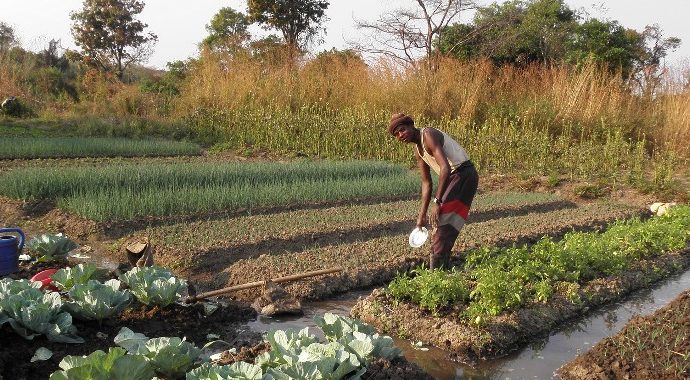Common Misconceptions about the Agriculture Industry in Pakistan.
Part-1
Do you believe that markets for agricultural commodities are highly distorted?
And if you believe this, then I would say that it is an understatement because almost all high-income countries engage a dizzying array of policies to support farm income, such as import tariffs; tariff-rate quotas (in which imports regarding agriculture are subject to a different, usually lower, tariff rate); subsidies are offered on inputs, outputs, and exports; and direct payments to farmers.
The Pakistani population depends heavily on the rural areas for food, and agriculture is the most important sector of Pakistan’s economy. Recent and past statistics indicate that farming is the key land use in Pakistan. However, there are some misconceptions about Pakistani agriculture industry and these misconceptions have detrimental implications on agriculture.
Let me walk you through five very common misconceptions about the agriculture industry in Pakistan:-
- Agriculture is a Risky Venture
Many investors in Pakistan are afraid of agricultural investments because of the misconception that agriculture is a risky venture. However, whether the agriculture is risky or not mainly depends on investor him/herself rather than of agriculture sector. Like all other investments, agricultural investments also have its risk as well as benefits. It may be very risky if one is ready to invest in low-quality land. However, the case is all the way around if one is considering about prime investment grade farmland which promises steady and consistent returns while escalating the principle.
I would guess that many of the Pakistani investors have absolutely no idea how the agricultural commodities can benefit them. This is not their fault entirely because most stock brokers and finance managers are always calling for more investment in real estate, stock exchange, and bonds. Investors normally call the agricultural commodity risky, but these are the same people who invest heavily in shares where they watch their shares go to zero. No agricultural commodity has ever gone to zero and they never will.
Agriculture is the backbone of Pakistan’s economy. Apart from being providing the basic necessity of life – food, agriculture has a potential to create a tremendous economic impact. It cannot be emphasized that the food and farming are critical to the balance of trade and employment in almost every country especially Pakistan. All across the country, it is agriculture that supports the economy.
In past years, the agricultural industry in Pakistan has not received the best of media coverage. There are a few selected trustworthy agricultural investment companies in Pakistan and all it takes is the determination on investor’s part to reach out these companies and to learn about investing in the agriculture. Investing in agriculture can be very profitable if the investor is well informed.
Agriculture is not Sustainable
The sane pursuit of sustainability, whether globally or locally, is only possible if we as a nation could agree upon what sustainability is, or more exactly if a Pakistani knows what we want to sustain.
Sustainable agriculture is an issue that many environmentalists started pondering in past years. The reason behind discussion about agricultural sustainability is very important because the food is something that we need for physical survival and agriculture directly deals with how to produce it.
However, there is a misconception that sustainable agriculture deals only with feeding the expanding population today and producing enough food to meet the nutritional demands at present. But, it is a much broader concept which is deals with meeting the food demand for the future. It is a fact that some geographic regions that used to have fertile soil have become deserts due to inefficient agricultural practices that are common in the world today. Therefore, sustainable agriculture is anxious in developing an efficient and effective food production system that would prevent land from losing fertility while producing adequate yields in future. So far we have 2 areas that sustainable agriculture is concerned with: meeting the demand for food today and making sure that our future generations will be able to produce enough food.
It is important to highlight that making the transition to sustainable agriculture is a process. Reaching this goal is not the responsibility of farmers only but all: laborers, policy makers, researchers, and consumers. Agricultural sustainability is under great pressure in Pakistan. Fewer farms are able to struggle to hold a viable financial position against the pressures of the ‘cost-price squeeze’ inflicted by agri-businesses, governments, and consumers, all wanting cheap food. Sustainable agriculture in Pakistan necessitates both a change in the economic and institutional framework and farmers’ motivation and values. Appropriate intervention by the government in areas such as easy market access to the farmers, infrastructure development, research and extension in agriculture, could make a critical difference in the process of development of sustainable agriculture.
It is vital to make agriculture more sustainable if we want to preserve Pakistan and eliminate the possibility of the famine for our future generations. We should be thankful to our unschooled and untaught farmers who have transformed this country from a deficit to a surplus. If we have a look at the world, we can easily notice that very few developing countries have been able to achieve a sustained growth rate of 4 percent for the agriculture sector and Pakistan is one of them. There is no doubt that we need to further improve and boost our productivity in agriculture but we should be proud of the contribution the farming community has made to the country’s economy.To be continued….
Read Part 2: Common Misconceptions about the Agriculture Industry in Pakistan Part-2

